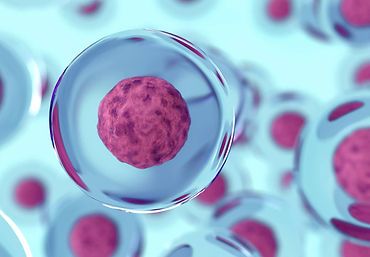STEM CELLS THERAPY IN TIJUANA
What are Stem Cells?
Stem cells are a special type of cell that have two important properties. They can produce more of their own kind. That is, they renew themselves. They can also develop into other cells that do different things in a process known as differentiation. Stem cells are found in almost all tissues in the body. Furthermore, they are needed to maintain tissue and to repair it after injury.
Depending on the location of stem cells, they can develop into different tissues. For example, hematopoietic stem cells reside in the bone marrow and can produce all the cells that function in the blood. Stem cells can also develop into brain neurons, heart muscle cells, bone cells, or other cell types.
What are Exosomes?
Exosomes are small vesicles released by cells. They are responsible for cell-to-cell communication, essentially acting as messengers carrying valuable protein signals and genetic information (DNA and RNA) between cells.
Exosomes can travel throughout the body, delivering messages that tell cells how to behave, what's happening nearby, or what they should produce. These messengers are naturally produced by the cells in our bodies, with stem cells being the main producers.
What are stem cells used for?
In recent years, stem cell applications in medical treatments have become very common, as they offer good results and can improve patients' quality of life. The most common use is in regenerative medicine, since stem cell implantation allows for the regeneration of damaged tissue.
One of the fundamental applications is cell therapy, in which stem cells are implanted into damaged tissue or organs to treat a specific pathology. Furthermore, their use is increasingly common in transplantation, i.e., organ transplant procedures.
Which patients are recommended for stem cell treatments?
As has been observed, virtually any patient is eligible for stem cell treatment. These cell therapies are especially recommended for patients with muscle and joint injuries such as osteoarthritis or injuries; with chronic degenerative diseases such as diabetes, kidney failure, Parkinson's disease, and Alzheimer's; and others such as autism and behavioral disorders.
In the case of elderly patients, stem cells can aid tissue regeneration, helping to improve mobility and enabling them to perform daily activities.


SUMMARY OF THE USE OF EXOSOME THERAPY
HAIR THERAPY
The use of Exosomes as a treatment for hair loss has shown prominent results in hair growth in both men and women. It is highly recommended for those who are too young for hair transplant surgery and those who are in the early stages of the hair loss cycle.
BEAUTY/SKIN CARE
Exosomes and their components can help restore both the youthful contour and shape of the face, as well as provide a noticeable improvement in skin quality, tightness and color irregularities caused by the aging process and exposure to the sun and the environment.
PAIN MANAGEMENT
By relieving pain and discomfort, these procedures can potentially stimulate repair rather than blocking or masking pain and discomfort.
Common conditions treated with Exosomes:
-Osteoarthritis
-Knee pain
-Shoulder
-Nerve Pain
-Tendinitis, Osteopathies
-Slow, non-healing wounds/burns
ANTI-AGING EFFECT
By exposing cells from an older organism to those from a younger organism, we can see that the exosomes from the young stem cells are responsible for rejuvenating the older cells. This healing mechanism can now be used in regenerative medicine.
ADJUVANT THERAPY FOR THE TREATMENT OF CHRONIC DEGENERATIVE DISEASES
A degenerative disease occurs due to a continuous deterioration of cells, affecting tissues or organs. Exosomes can enhance or inhibit the immune response depending on the cell they originate from and its functional status. Stem cell-derived exosomes have been reported to alter dendritic cell maturation and regulate B cell activation, differentiation, and proliferation. They have been shown to control natural killer cell activity and suppress the innate immune response (IIR) .



